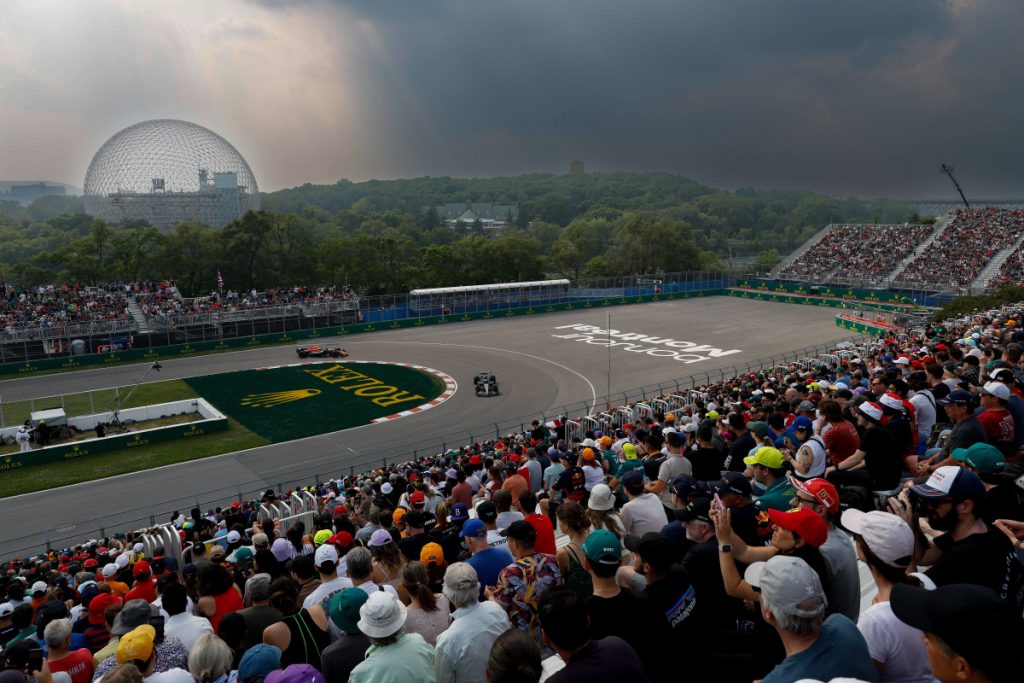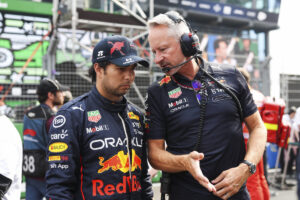Just in: Formula 1 Announces Major Shift in Canadian Grand Prix…..read more

Formula 1 Announces Major Shift in Canadian Grand Prix…..read more
In a significant update to the F1 calendar, the Canadian Grand Prix will undergo a major change starting in 2024, with the iconic race moving from its traditional June slot to a new position in May. The Canadian GP, held annually at the Circuit Gilles Villeneuve in Montreal, has been a staple of the Formula 1 calendar since 1967, interrupted only by occasional year-long breaks. The change marks a departure from the race’s long-standing timing and is part of broader efforts by the sport to enhance sustainability and improve logistical efficiency.
The Canadian Grand Prix is known for its thrilling races and rich history, with standout moments such as the famous 1999 race where three Formula 1 world champions – Michael Schumacher, Damon Hill, and Jacques Villeneuve – collided with the track’s notorious “Wall of Champions.” The event has consistently been a fan favorite and is regarded as one of the most exciting races on the calendar. In 2024, Max Verstappen took the win, continuing his dominant season where he clinched eight victories by mid-year.
The decision to shift the Canadian GP from its traditional June date is part of Formula 1’s ongoing strategy to reduce its environmental impact. F1 has set ambitious sustainability goals, including achieving net-zero carbon emissions by 2030. A key part of this effort is reducing the sport’s carbon footprint by minimizing the need for transatlantic travel and streamlining race logistics. The revised calendar will group races more efficiently by region, helping to reduce the amount of travel required for teams, personnel, and equipment.
As a result, the Canadian Grand Prix will now take place on either the third or fourth weekend of May, moving earlier in the season. This timing change is intended to create a more streamlined race schedule and reduce the travel burden, particularly for teams based in Europe, which make up the majority of F1’s competitors. This adjustment is in line with a broader overhaul of the F1 calendar that includes several other notable changes.
In addition to the Canadian GP, the prestigious Monaco Grand Prix will also experience a shift. Starting in 2026, the Monaco GP will be held on the first weekend of June, moving away from its usual late-May spot. This change is significant not only for the logistical reasons but also to avoid a direct clash with the Indianapolis 500, a major event in the motorsport world that often competes for attention and scheduling conflicts with the Monaco race.
Another major shift is the Japanese Grand Prix, which will be moved to the spring. The race, previously held in the fall, will now fall in line with other races in the Asia-Pacific region. This change aligns the Japanese GP with the broader strategy of grouping races in geographic regions, which not only helps with logistical efficiency but also reduces the carbon footprint associated with travel.
In a similar vein, the Azerbaijan Grand Prix, currently held in the spring, will now be scheduled for the autumn, becoming part of the eastern leg of the season. Additionally, the Qatari Grand Prix will now take place closer to the end of the season, likely in proximity to the Abu Dhabi GP. These changes are designed to consolidate races in certain regions, minimizing the need for teams to travel back and forth across different continents.
The focus on reducing travel and simplifying the calendar is aimed at making the sport more sustainable and easier to manage for teams. Formula 1 President and CEO, Stefano Domenicali, emphasized the importance of these changes in helping the sport meet its long-term environmental objectives. In an official statement, Domenicali said, “The change will make our calendar not only more sustainable but also logistically more sensible for our teams and personnel.” He further added that this shift is part of Formula 1’s broader commitment to achieving zero emissions by 2030, a goal that remains a top priority for the sport.
While the revised calendar marks a shift in how the races are scheduled, F1’s commitment to sustainability is a central focus of the changes. The sport is working to ensure that its impact on the environment is minimized while continuing to deliver thrilling racing action for fans around the world. Domenicali’s remarks highlight how crucial these adjustments are in aligning with F1’s vision for the future.
As with all major changes to the calendar, the new schedule is subject to final confirmation by the World Motor Sport Council of the FIA, the governing body of Formula 1. If approved, the revised dates for the Canadian Grand Prix and other affected races will be part of an updated race calendar that reflects Formula 1’s evolving approach to sustainability and logistics. With the new changes, F1 is not only reshaping the racing calendar but also ensuring the sport’s long-term viability in a rapidly changing world.








